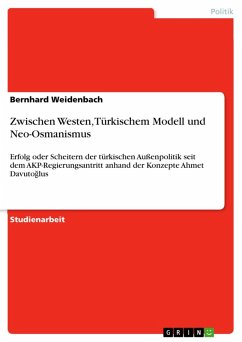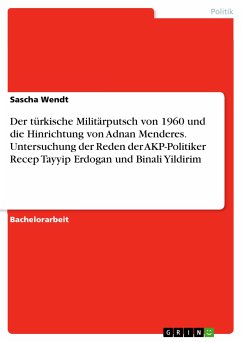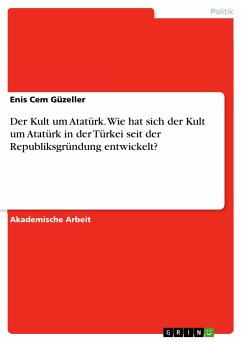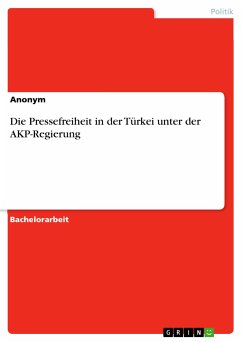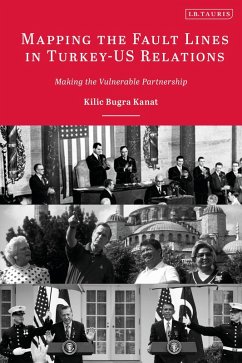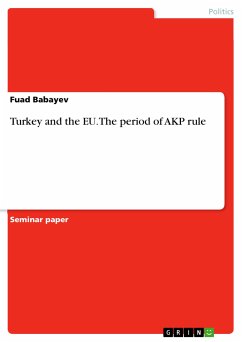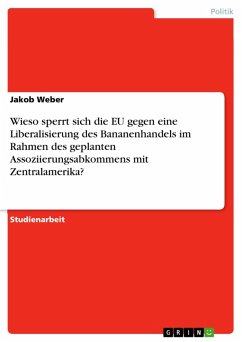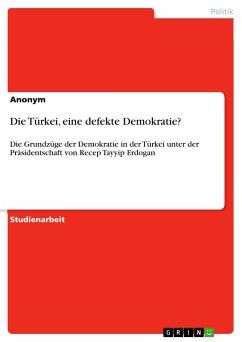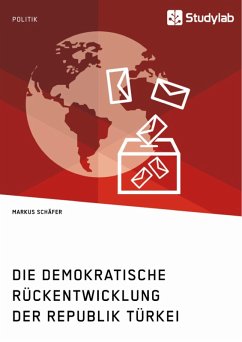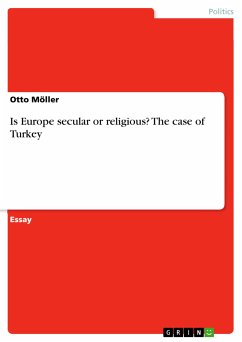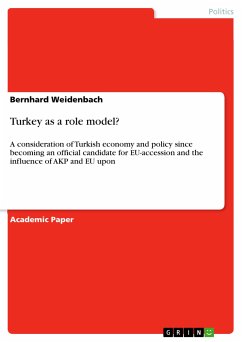
Turkey as a role model? (eBook, PDF)
A consideration of Turkish economy and policy since becoming an official candidate for EU-accession and the influence of AKP and EU upon
Versandkostenfrei!
Sofort per Download lieferbar
Statt: 17,95 €**
15,99 €
inkl. MwSt. und vom Verlag festgesetzt.
**Preis der gedruckten Ausgabe (Broschiertes Buch)
Alle Infos zum eBook verschenkenWeitere Ausgaben:

PAYBACK Punkte
0 °P sammeln!
Academic Paper from the year 2015 in the subject Politics - Topic: European Union, grade: 1,7, European University Viadrina Frankfurt (Oder) (Wirtschaftswissenschaftliche Fakultät), course: The Economics of the European Integration, language: English, abstract: In 1999 Turkey became candidate country for the European Union. Subsequently, but especially after the Turkish financial crisis of 2001 and the AKP electoral win of 2002, Turkish economy boomed. Until 2015, GDP more than tripled, the economic structure changed (from agricultural to service sector dominated) and economic relevance incre...
Academic Paper from the year 2015 in the subject Politics - Topic: European Union, grade: 1,7, European University Viadrina Frankfurt (Oder) (Wirtschaftswissenschaftliche Fakultät), course: The Economics of the European Integration, language: English, abstract: In 1999 Turkey became candidate country for the European Union. Subsequently, but especially after the Turkish financial crisis of 2001 and the AKP electoral win of 2002, Turkish economy boomed. Until 2015, GDP more than tripled, the economic structure changed (from agricultural to service sector dominated) and economic relevance increased, what is illustrated e.g. by the admittance in G20. This economic boom is accompanied by AKP's domestic political transformation (conservatism and moderate Islamisation) as well as the rising orientation to the region (Middle East, Northern Africa and Caucasus). Turkey became a regional player with high geostrategic ambitions. This is illustrated also by an alienation of the EU. This work adumbrates the general Turkish development before 1999 and outlines the development since 1999 (both political and economic).
Dieser Download kann aus rechtlichen Gründen nur mit Rechnungsadresse in A, B, BG, CY, CZ, D, DK, EW, E, FIN, F, GR, HR, H, IRL, I, LT, L, LR, M, NL, PL, P, R, S, SLO, SK ausgeliefert werden.




